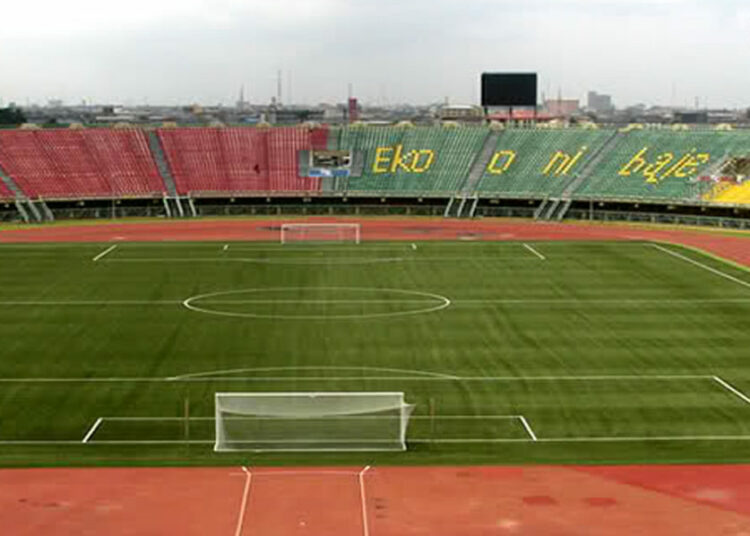The Nigeria Football Federation yesterday organised a seminar for general managers and club licensing managers of teams in the Nigeria Premier Football League and the Nigeria Women Football League, with a view to briefing them adequately on the Confederation of African Football’s new regulatory framework for the Club Licensing System and Stadium Regulations.
The regulations include a fresh edition of the CAF Men’s Club Licensing Regulations, first-ever edition of the CAF Women’s Club Licensing Regulations, a fresh CAF Club Licensing Quality Standard, a dedicated CAF Club Licensing Catalogue of Sanctions and a fresh CAF Stadium Regulations.
Inside the Conference Room of the NFF/FIFA Goal Project facility of the Moshood Abiola National Stadium, the Club Licensing Unit of the NFF took participants through the frameworks, regulations and requirements that strengthen the Club Licensing System for men and women’s football for continental and domestic competitions, define the minimum standards that Member Associations or affiliated Leagues (as Licensors) must comply with in order to operate the Club Licensing System, establish a categorization of stadium technical requirements per type of CAF Competition and set out sanctions to be applied for lack of proper implementation by Member Associations.
The changes include: 1) CAF has moved away from the A, B and C types of criteria. Under the CAF Men’s Club Licensing Regulations (edition 2022), two types of criteria are introduced: continental and domestic criteria. ‘Continental’ applies to Clubs participating in CAF Interclubs competitions and the ‘Domestic’ must be defined by each MA for their men’s top tier competition, respecting the minimum criteria and requirements established in the CAF regulations.
2) Licensors must now include as a criterion, at a minimum in their top tier men’s national club competition, articles 26, 26, 30, 31, 32, 33, 34, 35, 39, 40, 41, 42, 47, 48, 53, 54, 55, 58, 59, 60, 61, 62 and 63 from the CAF Men’s Club Licensing regulations into their National Men’s Club Licensing Regulations, while adjusting the requirements in each criterion to the domestic competition regulations.
3) Improvements have been made to areas such as child protection and welfare, medical care of players, women’s football teams, club administrative positions and qualifications, and tighter deadlines for overdue payables.
4) There is now a requirement for women’s football teams, which means that clubs intending to participate in the CAF Interclubs competitions must have a minimum one women’s first team participating in a competition sanctioned by the Member Association.
5) The purpose of the CAF Stadium Regulations is to define the technical requirements to be met by stadiums for use in football competitions under the auspices of CAF, with a view to providing the best conditions for football practice, safety, functionality and comfort for players, fans and officials. The regulations govern the minimum structural criteria to be fulfilled by a stadium for it to be classified (in ascending order) as CAF category 1, 2, 3 or 4 based on the different types, grades and categories of matches and championships.




